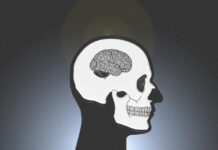Into the Woods: A Path Through Anxiety
As individuals, psychiatrists are undoubtedly well-intentioned. But the Prozac paradigm undermines the path of acceptance by its very agenda to “get rid of” or “fix” anxiety. It is by its nature a resistance — and what you resist, tends to persist.
Helping People to Constructively Engage with Voices
When voices are engaged with creativity and compassion, the result can be a positive change in the relationship with voices, leading to much greater peace of mind. But how can people learn how to facilitate this? A new video series by Charlie Heriot-Maitland, Rufus May and Elisabeth Svanholmer offers some practical ideas.
Why Mental Health Systems Should Be Organized Under Alcohol and Drug Systems
While I was in charge of the public systems for both mental health and addictions in Oregon, I found it a challenge to maintain an equal focus on alcohol/drug problems compared to mental health. One big reason for the emphasis on mental health was that the mental health budget was big, about 6 times greater than that for addictions. And that doesn’t even count the hidden funding for psychiatric drugs which probably added another 30 or 40% to mental health —atypical antipsychotics are a lot more expensive than Antabuse.
Not So Rare But Rarely Diagnosed: From Demonic Possession to Anti-NMDA Receptor Encephalitis
Throughout the ages, convulsions, contortions of the body and face, including the tongue, super-human strength, catatonic periods, long periods of wakefulness or sleep, insensitivity to pain, speaking in tongues, and a predilection for self-injurious behaviours have all been offered as physical evidence of possession. The modern day interpretation, however, comes with a plot twist befitting a media spectacle. There is growing consensus in the medical community that many prior accounts of “demonic possession” may have represented original accounts of what is now broadly known as autoimmune encephalitis.
Power, Privilege & Controlling the Narrative: Vested Interests in ‘Mental Health’
Alienating someone from their own meaning-making is a violent action, but that's what happens when professionals use unscientific, decontextualised diagnoses.
Family Members – Allies or Adversaries?
After filling with anger from listening to parents' testimony to the Connecticut General Assembly for hours, I realized: Parents believe what they are told and what society believes – that certain emotional experiences are signs of a disease that needs to be treated like other medical illnesses. The reality is that those parents want exactly what I want – for our children to be happy. We owe it to our communities to channel the voices of parents who feel that all the system offers children is diagnoses and drugs.
Unity in Diversity: Rethinking Mental Health and Our Connection to Nature
Meditation, walks in nature, and artistic and musical activities: These all have something in common—they have the power to dissolve the boundaries between us.
Critical Psychiatry Textbook, Chapter 9: ADHD (Part Two)
Peter Gøtzsche discusses the results of the MTA study on ADHD drugs and the misleading statements textbooks make about ADHD treatment.
Violence Caused by Antidepressants: An Update after Munich
The media is now reporting details about the 18-year-old who shot and killed nine and wounded many others before killing himself on July 22 in Munich. My clinical and forensic experience leads to a distinction among people who murder under the influence of psychiatric drugs. Those who kill only one or two people, or close family members, often have little or no history of mental disturbance and violent tendencies. The drug itself seems like the sole cause of the violent outburst. On the other hand, most of those who commit mass violence while taking psychiatric drugs often have a long history of mental disturbance and sometimes violence. For these people, the mental health system seems to have provoked increasing violence without recognizing the danger.
Persecution: Dangerous Liaisons
If you participate in a clinical trial, the new industry "consent" forms mean you put your children and your wider family and community in a state of legal jeopardy. Because they can hide the data of your experience in the trial, even if you have been significantly injured by the treatment, companies can declare there were no side effects and your invalidated experience can then be used to deny justice to someone who is injured in exactly the same way you have been.
How Effective are Neuroleptic Drugs?
Robert Whitaker has raised questions about the problems with long term exposure to antipsychotic drugs but recent research raises questions about their efficacy in the short run.
Uncomfortable Relations: Reflections on Learning From Psychiatric Survivors
I increasingly think we can only reach greater understanding by working through our own experiences first, and then, if we can, alongside survivors. That will help us become more open to survivor knowledge. For example, we may need to work through our own need for control and understanding. It’s helpful to consider our own reactions to distress or madness — in ourselves and others.
We Need to be Studying the Mind, Not the Brain
Our priorities for studying and improving "mental health" are way out of whack. They have been for a long time. For the past 30 years, the National Institute for Mental Health has been spending most of its gigantic budget ($1.3 billion in 2015) on studying the brain and looking for the genes that cause "mental illness." That's been a tremendous waste of money, time and effort.
3 minutes to Create Medication Optimization for the Whole US
My last blog on this site was about how our federal and state governments are looking to make huge changes to our health care...
Inconvenient Truths About Antipsychotics: A Response to Goff et al
The most worrying thing about the Goff et al paper is the minimisation of the evidence that antipsychotics produce brain shrinkage. There are no studies that show progressive brain changes in people diagnosed with schizophrenia or psychosis in the absence of antipsychotic treatment.
Entrepreneurs as Mental Health Advocates
I want to keep urging people to move toward the entrepreneurial approaches, because I think they are very powerful and not well understood or trusted in our community. I have chosen to build a business because I think it's one of the best ways I can impact on our world. After looking at the results of different types of advocacy work, this is the pressure point I've found most likely to make a difference.
The Power Dynamics of Psychedelic Therapy
I want people who have gone through psychedelic therapy to not feel alone if they felt silenced, controlled, or interpersonally hurt.
Building a Culture of Mental Well-Being
We used to turn to family, community, and religious/philosophical teachings to ease our despair. Now, one is expected to turn to psychiatrists and therapists. With depression rates rising throughout the world, modern society must find a way to enhance the individual’s capacity to build a meaningful, satisfying, and self-actualized life.
The Schizophrenic and the Dreamer
If delusions contain symbolic content, like dreams, then the language of the schizophrenic may be intelligible after all.
The ACE Survey is Unusable Data
Do the effects of trauma matter more, or a person's ACE score? I think this is unusable data that harms people when you gather it. Here's why.
Curing Schizophrenia via Intensive Psychotherapy
I believe that an Intensive Psychotherapy can lead to healing and, often, a cure of psychotic states. By cure I mean the cessation of delusions and hallucinations, and a gradual titration off of antipsychotic medication, with the cure lasting—even without continuing psychotherapy.
Confronting the Addiction Voice on the Road to Recovery
Part 1 of this series examined how the disease model of addiction intersects with the genetically based “mental illness” theory and practice of Biological Psychiatry. Part 2 analyzed the serious limitations and sometimes harmful effects of the domination of addiction treatment by the Twelve Step (disease model), and how Biological Psychiatry has both seized upon and expanded the culture of addiction in this country. What follows will be a presentation of some alternative methods for overcoming addiction problems.
Where are the Social Workers: Preparing for a Post-Psychiatry World?
Little more than a week ago, I participated in a panel discussion that focused on the implications of the DSM-5 for social work practice. It was part of a larger conference co-sponsored by the NYU School of Social Work and the New York City chapter of NASW. So far as I know, it was the first such social work conference that’s taken place in New York specifically assembled to review the new DSM.
Optimal Use of Neuroleptics, Pt. II; The Monkeys Were Not Psychotic
A major research group mentions in a paper published in an academically rigorous psychiatric journal (and I get it that some readers consider that an oxymoron) the possible influence of super-sensitivity on increasing the risk of relapse when neuroleptic drugs are stopped. Yet those of us who raise this as a reason to moderate our use of these drugs are considered biased or scientifically naive.
The Ubiquity of Unhappiness: An Introduction to Cultural Psychiatry
Cultural psychiatry provides a robust critique of a biologically orientated psychiatry. All cultures divide the world up into normal and abnormal; all have some notion of madness, but the idioms used to describe these states and the causes behind them can only ever be understood in the full context of the culture where they take place. It suggests that the very categories which are assumed to be natural occurring forms, are in fact just social and cultural constructions.





















